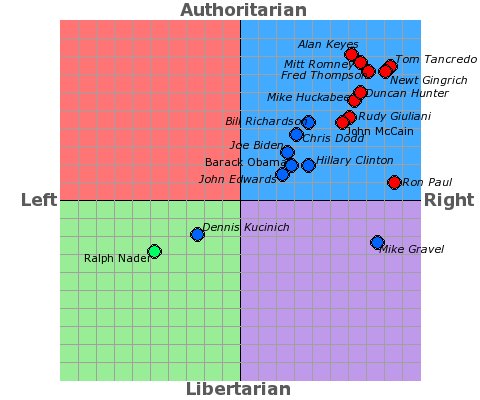A thoughtful conservative perspective on climate
Posted on 29 December 2011 by Tom Smerling
 Peter Wehner has impeccable conservative credentials, having served under Reagan, George H. W. Bush, and most recently, as deputy assistant to Pres. George W. Bush. He resides at the "Ethics & Public Policy Center," a neo-con think tank.
Peter Wehner has impeccable conservative credentials, having served under Reagan, George H. W. Bush, and most recently, as deputy assistant to Pres. George W. Bush. He resides at the "Ethics & Public Policy Center," a neo-con think tank.
After a long look at the evidence, Wehner concluded that the scientific consensus on climate is correct. He wrote two interesting posts titled "Conservatives and Climate Change," in the neo-con magazine Commentary, which prides itself in intellectual conservatism.
Wehner makes a nod to scientific uncertainties and the potential dangers of excessive government intervention, and he firmly rejects alarmism. Climate hawks will find plenty to argue with, but these caveats are worth considering because a) most have some merit, and b) they clarify exactly where many conservatives get stuck. If we don't address conservative reservations and fears directly, we're failing to get at the roots from which science denial stems.
More importantly, Wehner explicitly separates the question "Is it happening?" from "What should we do?" -- in itself a major step forward -- and for the most part he accepts the science. His gutsy stance is particularly welcome following the recent recantations by born-again climate agnostics Romney, Gingrich and Huntsman.
Check out these excerpts (The full posts are here at Part I & Part II)
"The world is getting warmer. The warming is almost certainly caused, at least in large part, by human activity. And rising temperatures could pose a future risk, though how significant of a risk is open to interpretation. . . This is not a liberal invention; it’s physics.
Conservatives should be part of that conversation. There’s an intellectually credible case to be made that it’s unwise to embrace massive, harmful changes to our economy in the face of significant uncertainties . . . [yet] to acknowledge global warming does not necessarily lead one to embrace Al Gore’s environmental agenda.
But rather than offer constructive ideas on how to deal with global warming, some conservatives simply deny global warming has occurred. Their concern is that admitting global warming is real opens the door to government restriction on liberty, so it’s simply better to keep the door bolted shut. . .
[Yet] the problem for those who deny global warming is empirical: Earth’s temperatures have increased and human activity has contributed to it. To deny this is to deny reality, to subordinate truth to ideology. And in the long run that can only damage conservatism."
It seems to me that anybody who cares about climate should listen respectfully and engage with people like Wehner who say it is time for conservatives to join the conversation about market-based solutions, rather than pretend that the problem doesn't exist.
Neo-cons are a particularly interesting group in this debate, because they pride themselves on intellectual honesty. If enough people like Wehner speak up, it makes it easier for rank-and-file conservatives to accept the science without feeling they are betraying their identity or their cause.
That's exactly why climate misinformers will try to quickly squelch Wehner for breaking ranks -- and why advocates of an evidence-based approach should rally to his defense. Check out the comments below his Commentary posts. Amidst the usual skeptical talking-points and misperceptions about uncertainty, you'll see other commenters stating openly that their main concern is government overreach, and expressing a degree of open-mindedness when they state "I need more evidence" or "I'm still unconvinced."
Isn't this exactly the audience we need to be engaging with?
[Update 12/22/11: The debate continues to rage at Commentary online. Editor Jonathan Tobin answered Wehner by arguing that "Conservative Skepticism is Rooted in Environmentalist Hysteria." Oddly, Tobin tossed in some of the flimsiest arguments possible ("Warming may be good") and indulged in the very hyperbole and ad-hominism that he accuses the "warmers" of. Wehner replied immediately, with another carefully-reasoned, thoughtful piece that -- citing the IPCC, National Academies of Science, and the US Climate Science Program -- urges conservatives to focus less on the other sides' perceived behavior and more on "those stubborn facts" about climate. See "Conservatives and Climate: Facts Should be Our Guiding Star."]
(This is a cross post from ClimateBites, posted 12-20-11.)































 Arguments
Arguments























 0
0  0
0 (See politicalcompass.org)
Finally, agreement with Mr. Wehner, and certainly not qualified agreement in no way indicates that you are left of center. His stated position in the articles in question amounts only to a qualified acceptance of the science, and scientific fact knows no politics. The most left wing policy position Mr Wehner espouses is the view that,
Next you'll be asking for credit as a radical lefty because you did not disagree with all of George W Bush's expenditure to help rebuild New Orleans after Hurricane Katrina.
(See politicalcompass.org)
Finally, agreement with Mr. Wehner, and certainly not qualified agreement in no way indicates that you are left of center. His stated position in the articles in question amounts only to a qualified acceptance of the science, and scientific fact knows no politics. The most left wing policy position Mr Wehner espouses is the view that,
Next you'll be asking for credit as a radical lefty because you did not disagree with all of George W Bush's expenditure to help rebuild New Orleans after Hurricane Katrina.







Comments